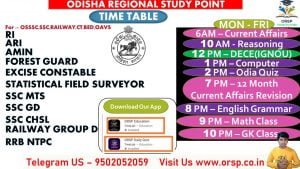DECE Assigment(Jan 2021)(100% Free)-IGNOU-ORSP
FOR PDF MASSAGE US ON TELEGRAM – 9502052059(100% free)
FOR PDF MASSAGE US ON TELEGRAM – 9502052059(100% free)
PRINT OUT BELOW FILES
DECE ASSIGNMENT FRONT PAGE
(BOTH FOR HIN & ENG)
DECE ASSIGNMENT(QUS) ENGLISH
DECE ASSIGNMENT(QUS) HINDI
DECE 1 EXERCISE COPY(ENG)
DECE 1 EXERCISE(HINDI)
DECE ASSIGNMENT FRONT PAGE
(SOLUTION)
(BOTH FOR HIN & ENG)
Just Change Sesson – Jan 2021
Example Of Assignment Shorting
DECE1(ENG)
FOR PDF MASSAGE US ON TELEGRAM – 9502052059(100% free)
SECTION A
1 (a) Outline the sequence of emergence of gross motor skills from birth to two years of age.
Gross motor skills
Gross motor skill development involves the large muscles in the arms, legs and torso. Gross motor activities are important to everyday physical activities like walking, running, throwing, lifting, kicking, etc. Gross motor abilities also form the basis for fine motor skills and relate to body awareness, reaction speed, balance and strength.
Gross motor skills from birth to two years of age
Newborn to 2 months
- Turns head to both sides while on back
- Lifts head and able to turn to both sides while on belly
- Head lag with pull to sit
- Kicking both legs and moving both arms equally while on back
- Performs tummy time on the floor regularly
3-4 months
- Raises head in line with trunk when pulled to sit
- Pushes up on forearms and turn head side to side while on belly
- Tolerates tummy time well
- Rolls from belly to back
5 months
- Rolls from back to belly
- Brings feet to mouth laying on back
- Pushes up on hands with arms extended while on belly
- Pivots in a circle while on the belly to each side
6-8 months
- Sits alone
- Reaches for toys to play in sitting
- Catches self with loss of balance in sitting
- Crawls on belly
9-11 months
- Moves between laying down and sitting upright without help
- Crawls on hands and knees
- Pulls to a standing position with one foot leading
- Cruises around furniture
- Walks with two hands held
11-12 months
- Walks with one hand held
- Stands alone for a few seconds
13-14 months
- Crawls up stairs
- Stands up from the floor without support
- Walks alone well
- Squats and stands back up without holding onto support
15-18 months
- Walks up stairs with hands or rails to help
- Crawls down the stairs (on belly, feet first)
- Can run, though falls easily
- Kicks a ball forward
2 years
- Walks and runs fairly well
- Jumps in place with both feet off the ground
- Walks up and down stairs alone
- Kicks a ball with either foot
(b) Describe one activity each for fostering the development of the following abilities in four year old children.
(i) Pre-reading skills
pre-reading skills are the skills your child needs in their arsenal before they learn to read. These are things that will ease the stress and difficulty of learning to read when they begin formal education. Helping develop pre-reading skills is one of the best things a parent can do to prepare their child for reading.
PRE-READING SKILL : PRINT MOTIVATION
Print motivation means being excited about and interested in reading books. Parents should read in front of their children.
HOW TO ENCOURAGE PRINT MOTIVATION
- Make print visible to your child. Even if it is a grocery list, recipe, or E-mail. Show that you also enjoy reading.
- Read with your child every day.
- Read with a natural, but cheerful voice.
- Allow your child to choose his own books from the library or book basket.
- Help your child find books that are of an interesting topic to her.
(ii) Creativity in four year old children.
Preschoolers like to be spontaneous in their creative play, so it’s good to follow your child’s lead. But there’ll also be times when your child wants you to be more involved in her creative activities. By being actively involved, you can develop your child’s skills and understanding.
It’s good to show your child that there’s more than one way to do something. For example, there’s more than one way to draw a person, build a sandcastle or play a drum. This lets children know they can develop their own ideas.
Creative activities: arts and crafts
Everyday and recycled objects can encourage your child’s creative development. For example:
- Give your child an empty cardboard box to make a house, a robot, a truck, an animal – whatever your child is interested in. Your child could paint the box or decorate it with craft materials.
- Use empty kitchen or toilet rolls or small plastic juice bottles to make people. Draw on faces, stick on paper clothes, and use cotton wool for hair. Your child could use these new toys to make up stories.
- Go on a nature walk to look for natural materials to make art. For example, in autumn collect fallen leaves for drawing, pasting onto paper or dipping into paint.
- Use small plastic lids, patty pan cases and other ‘threadables’ to make jewellery.
- Keep a ‘busy box’ with things like string, wrapping paper scraps, patty pans, paddle pop sticks, stickers and straws that your child can use to make whatever she wants.
- Find apps or games that your preschooler can use to make digital art. For example, there are apps for free drawing or arranging photos into collages.
2(a) What is meant by “altruism” and “empathy”? (200 words)
Altruism
Altruism is the unselfish concern for other people—doing things simply out of a desire to help, not because you feel obligated to out of duty, loyalty, or religious reasons. It involves acting out of concern for the well-being of other people.
Examples of Altruism
Everyday life is filled with small acts of altruism, from holding the door for strangers to giving money to people in need. News stories often focus on grander cases of altruism, such as a man who dives into an icy river to rescue a drowning stranger or a donor who gives thousands of dollars to a local charity.
Some examples of altruism include:
- Doing something to help another person with no expectation of reward
- Forgoing things that may bring personal benefits if they create costs for others
- Helping someone despite personal costs or risks
- Sharing resources even in the face of scarcity
- Showing concern for someone else’s well-being
Empathy
Empathy is the ability to emotionally understand what other people feel, see things from their point of view, and imagine yourself in their place. Essentially, it is putting yourself in someone else’s position and feeling what they must be feeling.
When you see another person suffering, you might be able to instantly envision yourself in the other person’s place and feel sympathy for what they are going through.
(b) What aspects of the family environment would help in the development of altruism and empathy?
Yes Family Environment is very helpfull in the development of altruism and empathy?
1. Create a caring relationship.
To develop the capacity to feel empathy for others, a child must feel seen, felt, heard, and understood by at least one primary caregiver. Family members who know, appreciate, and respect a child regardless of external accomplishments help that child feel emotionally attached to a caring adult. These kinds of loving relationships increase a child’s ability to care for others.
2. Listen for understanding.
Active listening is a practice that helps parents and children grow in their understanding of each other. Three skills most often associated with good listening are: 1) Respect the other person, 2) Listen more than you talk, and 3) Always seek understanding.
3. Transform gift-giving into lasting family values.
Gift-giving during the holidays, or for other special occasions, can shape children’s lifelong identities. The values your family holds about gift-giving can be turned into powerful lessons that teach compassion, empathy, and kindness. Be proactive about your values as you develop holiday traditions. Include children in conversations about how to give to others.
4. Nurture positive citizenship.
Raising children to become active citizens doesn’t happen by chance. It happens when children
- Connect with others in need,
- Confront moral dilemmas,
- Reflect on their values,
- Notice how social issues are connected, and
- Create positive and passionate civic identities.
5. Help kids learn from volunteering.
Children gain developmental benefits from participating in community service. Tweens and teens are especially ready to stretch in ways that bring deeper meaning to life. But to do so, they need adult support and encouragement.
6. Lead with empathy.
Family values are reflections of who we are and how we parent. When parents lead with empathy, gratitude, and kindness, children learn to do the same.
3. Suppose you are an educator in a preschool centre.
(a) Describe two methods that you would use for evaluating children’s progress. (400 words each)
Childhood assessment is a process of gathering information about a child, reviewing the information, and then using the information to plan educational activities that are at a level the child can understand and is able to learn from.
Methods of child assessment can be informal (conducting natural observations, collecting data and children’s work for portfolios, using educator and teacher ratings) and formal (using assessment tools such as questionnaires and standardized testing). Both methods are effective and can help inform educators and parents about a child’s progress.
- Observations can be made with minimal or no intrusion into children’s activities. Educators can observe all facets of development, including intellectual, linguistic, social-emotional, and physical development, on a regular basis.
- Educator Ratings are useful in assessing children’s cognitive and language abilities as well as their social-emotional development. These ratings can be linked to other methods of assessment, such as standardized testing or other assessment tools.
(b) State the points you will keep in mind while evaluating indoor space of the centre.
- Rich environments indoors have an immediate effect on the quality of children’s learning and development.
- What is a rich environment? It’s comfortable, interesting, attractive and appropriate for the child or children who use it.
- For some children it becomes like a second home where they eat and sometimes sleep.
- A suitable environment for a young baby will be very different from a suitable environment for a four or five year old although some features will be the same.
- Environments should be attractive and make children feel safe and secure and happy to be there and they should also be places where children can confidently play and learn.
- Indoor space needs careful planning as it needs to be flexible to accommodate children’s changing interests and needs.
- Resources should be of the highest quality.
- Books need to be attractive and well maintained and reflect children’s fascinations.
- Resources such as blocks for building with, felt pens, chalks or pencils for mark-making, clothes for dressing up in and small items such as cars, dolls and jigsaws should be accessible by children themselves.
4. What are the aspects that you would keep in mind while selecting play activities for young children?
“No amount of planning and equipment can replace genuine love. But a versatile piece of sturdy equipment geared to the child’s growth—not a number of flimsy, highly differentiated ones—will be your helper in loving support of the child and will see you through thick and thin.”
WHAT MAKES GOOD PLAYTHINGS?
- Simplicity of design
- Involve child in play
- Versatile in use
- Easily comprehended & manipulated
- Encourage cooperative play
- Material that is warm and pleasant to touch
- Durable
- Work as intended
- Safe
- Generous in proportion and quantity
- Price based on durability and design
5. In the context of preschool education it is said that
—Children should be given the freedom to explore and find out things for themselves.
—The educator needs to guide and structure children’s play activities in the preschool.
In your opinion, are the two statements contradictory to each other or do they
complement each other? Discuss your answer giving rationale for your views and
examples in support of your answer. (800 words) (8marks)
Play is a universal phenomenon and serves both natural and biological functions. Through play, children learn about the ever-changing world
Early childhood teachers say that “play is a child’s work” while some parents ask, “Did my child just play all day?” Play is sometimes seen as the opposite of teacher-directed and organized activities.
When children play, they have active engagement with materials. They are intrinsically motivated and have freedom from external rules. Play allows children to be attentive to the process at hand, and children display a positive affect when playing
Children begin to think symbolically when they play. For example, using a block and pretending it is a telephone, or pretending a pegboard with pegs is a birthday cake.
Teachers should begin by providing opportunities for children to have spontaneous, unstructured child-initiated play experiences. With this in mind, the classroom design must also be conducive to play. Children need a large enough area for playing with two or more peers in an area where they will not be interrupted.
- The benefits of play are maximized when teachers facilitate play, as limited learning may take place otherwise.
- Teacher support is also seen as a necessary component of developmentally appropriate practice.
- Teacher interventions during play take on many possibilities from assisting with problem solving, questioning, redirecting undesired behaviors, and enticing children into play themes.
- Teachers must also teach play skills to children who have difficulty entering into a play scenario.
- When planning for children’s play, teachers can determine specific goals and outcomes they want the child to achieve during play.
- Teachers should also individualize for children, keeping in mind their current level of cognitive, physical, social, emotional, and language development. For example, the teacher may have the goal of increasing the amount of expressive language a child uses throughout the day.
- The teacher might invite the child to the dramatic play area with another child who is very verbal and engages easy in play scenarios. The teacher also might provide scaffolding to support children’s learning and development by asking, “Why does the baby need to go to the doctor?” or “How do you think the doctor can help the baby?”
- This not only provides the child with an opportunity to use expressive language but also provides an opportunity for the child to think and formulate an answer.
6. Write in about 500 words on the following:
(a) Critical periods in development.
- There are some periods in the life of the child that are crucial for development and learning.
- During these periods if the child has favorable experiences, her development will be fostered.
- If in these periods experiences are unfavorable, development suffers.
- At this time the damage done because of unfavorable experiences may be irreversible.
- These periods when a child is particularly sensitive to the conditions in her environment are referred to as critical periods or sensitive periods.
- A critical or sensitive period is that time period in life when an environmental influence has its greatest impact on the development of the child.
- During this period, specific experiences affect the development of the child more than they do at other times.
(b) Capacities and capabilities of the new-born.
Babies are born fully equipped with all the necessary senses of sight, hearing, smell, taste, and touch. However, some of these senses are less precise than others. Below are some aspects of newborn senses:
- Vision. A newborn’s eyes are a little more than half the size of an adult’s eyes. They grow the most in the first year, then slowly grow until puberty. Most Caucasian babies have light gray or blue eye color, but this often changes by 6 months of age.
- Hearing. During pregnancy many mothers find that the baby may kick or jump in response to loud noises and quiet with soft, soothing music. Hearing is fully developed in newborns. Babies with normal hearing should startle in response to loud sounds, pay quiet attention to the mother’s voice, and briefly stop moving when sound at a conversational level is begun.
- Taste. Taste buds begin forming early in fetal development. It is known that babies prefer sweet tastes over sour or bitter tastes. Babies also show a strong preference for breast milk and breastfeeding, especially if they are breastfed and then offered formula or a bottle.
- Smell. The brain’s olfactory (smell) center forms very early in fetal development. Studies have found that newborns have a keen sense of smell. Within the first few days they will show a preference for the smell of their own mother, especially to her breast milk.
- Touch. Throughout the last months of pregnancy, a baby is snugly cocooned in the uterus, with arms and legs tucked. At birth, babies are thrust into a bright, cold world, where their arms and legs can suddenly move freely.
(c) Ways of involving the parents in the activities of the child care centre.
Parental involvement can be sought in different ways. School events, outreach efforts, in-school tips, and community involvement are all areas ripe for engaging with parents.
Regular school events
Starting with school, you can arrange events to welcome parents, interact with them, and gather families for food and fun.
- Hold regular parent meetings in a restaurant or somewhere other than the school.
- Have a regular evening for working on an academic topic, such as creating a math night for parents and children. You can include games to make learning fun.
- Plan a parent barbecue and invite the families to bring their favorite sides and desserts.
- Celebrate the birthdays of favorite authors. A ready-made opportunity is the Read Across America project that takes place annually on or near March 2, the birthday of the great Dr. Seuss.
- Plan a holiday meal or dinner theater event.
- Hold open houses several times a year to show off the children’s work.
- Offer parenting classes such as a workshop about limiting screen time for children.
- Many churches and youth groups hold “lock-ins.” You can have your own Overnight Read-In with parents and their children.
- Give Brown Bag Seminars about various parenting and child development topics.
Create a calendar of events and send early notifications as the dates approach. The more parents hear about it, the more likely they are to attend.
DECE2(ENG)
FOR PDF MASSAGE US ON TELEGRAM – 9502052059(100% free)
DECE3(ENG)
FOR PDF MASSAGE US ON TELEGRAM – 9502052059(100% free)
DECE1(HIN)
FOR PDF MASSAGE US ON TELEGRAM – 9502052059(100% free)
भाग (क)
1. (क) जन्म से लेकर दो वर्ष की आयु के दौरान स्थूल क्रियात्मक कौशलों के उभरने का क्रम बताइए।
स्थूल क्रियात्मक कौशलों
स्थूल क्रियात्मक कौशलों विकास में हाथ, पैर और धड़ में बड़ी मांसपेशियां शामिल होती हैं। चलने, दौड़ने, फेंकने, उठाने, लात मारने आदि जैसी रोजमर्रा की शारीरिक गतिविधियों के लिए सकल मोटर गतिविधियां महत्वपूर्ण हैं। सकल मोटर क्षमताएं भी ठीक मोटर कौशल का आधार बनाती हैं और शरीर की जागरूकता, प्रतिक्रिया गति, संतुलन और ताकत से संबंधित होती हैं।
जन्म से दो वर्ष की आयु तक सकल मोटर कौशल
नवजात से 2 महीने
- पीठ के बल सिर को दोनों तरफ घुमाता है
- सिर उठाता है और पेट के बल दोनों तरफ मुड़ने में सक्षम होता है
- बैठने के लिए पुल के साथ हेड लैग
- दोनों पैरों को लात मारना और पीठ के बल दोनों हाथों को समान रूप से हिलाना
- नियमित रूप से फर्श पर टमी टाइम का प्रदर्शन करता है
3-4 महीने
- बैठने के लिए खींचे जाने पर सिर को धड़ की सीध में उठाता है
- फोरआर्म्स पर पुश अप करें और पेट के बल सिर को बगल की तरफ घुमाएं
- पेट के समय को अच्छी तरह सहन करता है
- पेट से पीठ तक रोल
5 महीने
- रोल बैक टू बेली
- पीठ के बल लेटकर पांवों को मुंह से लगाना
- पेट के बल बाजुओं को फैलाकर हाथों को ऊपर उठाएं
- प्रत्येक तरफ पेट पर रहते हुए एक सर्कल में पिवोट्स
6-8 महीने
- अकेला बैठता है
- बैठने में खेलने के लिए खिलौनों तक पहुँचता है
- बैठने में संतुलन खोने के साथ स्वयं को पकड़ लेता है
- पेट पर रेंगना
9-11 महीने
- लेटने और बिना मदद के सीधे बैठने के बीच चलता है
- हाथों और घुटनों पर रेंगना
- एक पैर अग्रणी के साथ खड़े होने की स्थिति में खींचता है
- फर्नीचर के आसपास परिभ्रमण
- दो हाथ पकड़ कर चलता है
11-12 महीने
- एक हाथ पकड़ कर चलता है
- कुछ सेकंड के लिए अकेला खड़ा हो जाता है
13-14 महीने
- सीढ़ियों से रेंगता है
- बिना सहारे के फर्श से उठ खड़ा होता है
- अकेले अच्छा चलता है
- समर्थन को पकड़े बिना स्क्वाट और बैक अप लें
15-18 महीने
- मदद के लिए हाथ या रेल से सीढ़ियाँ चढ़ना
- सीढ़ियों से नीचे रेंगता है (पेट पर, पहले पैर)
- दौड़ सकते हैं, हालांकि आसानी से गिर जाते हैं
- गेंद को आगे किक करता है
2 साल
- चलता है और काफी अच्छा चलता है
- जमीन से दोनों पैरों के साथ जगह-जगह कूदता है
- ऊपर और नीचे सीढ़ियाँ अकेले चलती हैं
- किसी भी पैर से गेंद को किक करता है
(ख) चार वर्ष के बच्चों में निम्नलिखित प्रत्येक के विकास को बढ़ावा देने के लिए एक-एक क्रिया का वर्णन कीजिए
i) लेखन-पूर्व कौशल
(i) लेखन-पूर्व कौशल
लेखन-पूर्व कौशल वे कौशल हैं जिनकी आपके बच्चे को पढ़ने के लिए सीखने से पहले उनके शस्त्रागार में आवश्यकता होती है। ये ऐसी चीजें हैं जो औपचारिक शिक्षा शुरू करने पर पढ़ने के लिए सीखने के तनाव और कठिनाई को कम करती हैं। पढ़ने से पहले के कौशल को विकसित करने में मदद करना माता-पिता अपने बच्चे को पढ़ने के लिए तैयार करने के लिए सबसे अच्छी चीजों में से एक है।
लेखन-पूर्व कौशल: प्रिंट प्रेरणा
प्रिंट प्रेरणा का अर्थ है पुस्तकों को पढ़ने के लिए उत्साहित और रुचि रखना। माता-पिता को अपने बच्चों के सामने पढ़ना चाहिए।
प्रिंट प्रेरणा को कैसे प्रोत्साहित करें
- अपने बच्चे को प्रिंट दृश्यमान बनाएं। भले ही वह ग्रॉसरी लिस्ट, रेसिपी या ई-मेल ही क्यों न हो। दिखाएँ कि आपको भी पढ़ने में मज़ा आता है।
- हर दिन अपने बच्चे के साथ पढ़ें।
- स्वाभाविक, लेकिन हर्षित स्वर में पढ़ें।
- अपने बच्चे को पुस्तकालय या किताबों की टोकरी से अपनी किताबें खुद चुनने दें।
- अपने बच्चे को ऐसी किताबें खोजने में मदद करें जो उसके लिए दिलचस्प विषय हों।
ii) सृजनात्मकता
(ii) चार साल के बच्चों में सृजनात्मकता।
प्रीस्कूलर अपने रचनात्मक खेल में सहज होना पसंद करते हैं, इसलिए अपने बच्चे के नेतृत्व का पालन करना अच्छा है। लेकिन कई बार ऐसा भी होगा जब आपका बच्चा चाहता है कि आप उसकी रचनात्मक गतिविधियों में अधिक शामिल हों। सक्रिय रूप से शामिल होकर, आप अपने बच्चे के कौशल और समझ को विकसित कर सकते हैं।
अपने बच्चे को यह दिखाना अच्छा है कि कुछ करने के एक से अधिक तरीके हैं। उदाहरण के लिए, किसी व्यक्ति को आकर्षित करने, रेत का महल बनाने या ड्रम बजाने के एक से अधिक तरीके हैं। इससे बच्चों को पता चलता है कि वे अपने विचारों को विकसित कर सकते हैं।
सृजनात्मकता गतिविधियाँ: कला और शिल्प
हर दिन और पुनर्नवीनीकरण की गई वस्तुएं आपके बच्चे के रचनात्मक विकास को प्रोत्साहित कर सकती हैं। उदाहरण के लिए:
- अपने बच्चे को घर बनाने के लिए एक खाली गत्ते का डिब्बा दें, एक रोबोट, एक ट्रक, एक जानवर – जो भी आपके बच्चे की रुचि हो।
- आपका बच्चा बॉक्स को पेंट कर सकता है या शिल्प सामग्री से सजा सकता है।
- लोगों को बनाने के लिए खाली किचन या टॉयलेट रोल या प्लास्टिक जूस की छोटी बोतलों का इस्तेमाल करें। चेहरे पर ड्रा करें, कागज़ के कपड़ों पर चिपका दें और बालों के लिए रूई का इस्तेमाल करें। आपका बच्चा कहानियों को बनाने के लिए इन नए खिलौनों का उपयोग कर सकता है।
- कला बनाने के लिए प्राकृतिक सामग्री की तलाश के लिए प्रकृति की सैर पर जाएं। उदाहरण के लिए, शरद ऋतु में गिरी हुई पत्तियों को ड्राइंग के लिए, कागज पर चिपकाने या पेंट में डुबाने के लिए इकट्ठा करें।
- आभूषण बनाने के लिए छोटे प्लास्टिक के ढक्कन, पैटी पैन केस और अन्य ‘थ्रेडेबल’ का प्रयोग करें।
- स्ट्रिंग, रैपिंग पेपर स्क्रैप, पैटी पैन, पैडल पॉप स्टिक, स्टिकर और स्ट्रॉ जैसी चीजों के साथ एक ‘व्यस्त बॉक्स’ रखें, जिसका उपयोग आपका बच्चा अपनी इच्छानुसार बनाने के लिए कर सकता है।
- ऐसे ऐप्स या गेम ढूंढें जिनका उपयोग आपका प्रीस्कूलर डिजिटल कला बनाने के लिए कर सकता है। उदाहरण के लिए, मुफ्त ड्राइंग या कोलाज में फोटो व्यवस्थित करने के लिए ऐप्स हैं।
DECE2(HIN)
FOR PDF MASSAGE US ON TELEGRAM – 9502052059(100% free)
DECE3(HIN)
FOR PDF MASSAGE US ON TELEGRAM – 9502052059(100% free)
ORSP Daily Live Class Schedule

Important PDF/QUIZ/CLASS VIDEO
CHECK OUR PLAYLIST FOR WATCH LIVE CLASS

LEADERBOARD
[ays_quiz_leaderboard id="844"]
Welcome To
Odisha Regional Study Point
We Allow the best exam preparation for SSC, RAILWAY,BANKING,CT,BED,OTET,OSSTET,ASO,RI,AMIN, DECE(IGNOU) Navodaya(5th,6th) , BSE(Standard 9TH & 10TH) AND CBSE (Standard 9TH & 10TH) In ଓଡ଼ିଆ Language…
Why opt ORSP ?
✅Daily Free Live class
✅Daily Free practice Quiz
✅FREE Live Tests Quiz
✅Performance Analysis
✅All Govt Exams are Covered
Join With us As per Schedule
And
Happy Learning…
Thank You
ORSP
(9502052059)
Subcribe Youtube Channel Link-
Join Our Telegram Channel(ORSP DISCUSS)
Join Our Telegram Channel(IGNOU HELPLINE)
Join Our Telegram Channel(CBSE)
Join Our Telegram Channel(8TH,9TH,10TH,Navodaya)
Thank You
ORSP
9502052059







